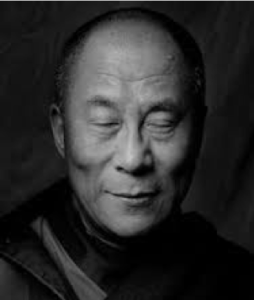Thoughts on Sangha
Good Morning. Today I am tired. I slept well, but I’m still tired. Today we will focus on what to do when staying connected is emotionally exhausting. Yesterday, we talked about the importance of staying in the present, even if the present is painful. It is important for us, but even more important for our community to stay connected to the present moment. In my experience, doing what we normally used to do—eat, work, socialize—has required considerably more effort (and bandwith) than before. The constant barrage of painful COVID-19 news on TV and within our own friends and family has been emotionally draining. The last week has been emotionally devastating. So it seems that it makes sense to feel tired. Mindfulness does not offer freedom from pain, but it does promise to help us to avoid becoming stuck in suffering. Zen teaches that suffering comes when we refuse to accept painful realities. I have found myself recently looking at images on the news and thinking is this really my country? The images remind me of TV footage I was shown in school about what the 1960’s were like. We will ourselves to accept reality by observing it and breathing without pushing away details, thoughts, or feelings. But today’s practice will highlight a way to be present that can be less painful—without disconnecting or avoiding our experience—through relying on sangha or a community of practice.
The word sangha is a Sanskrit word that means “community.” Some might argue that sangha refers only to a group of monks, nuns, and laity living and practicing together, but I think of it differently. The practices I’ve been writing during COVID have extended to a wide web of individuals—to residents and staff in facilities I work with, friends, teachers, family, and even people I do not know who practice because someone they know passed along these exercises.
Thich Nhat Hahn said, “Your sangha—family, friends, and co-practitioners—is the soil, and you are the seed. No matter how vigorous the seed is, if the soil does not provide nourishment, your seed will die. A good sangha is crucial for the practice.” You can think of all the people who practice mindfulness in our little circle as a sangha. When you are personally tired, just show up for your practice. The energy of the collective group can help to buoy you when you are feeling depleted.
Taking refuge in the sangha means putting your trust in a community of solid members who practice mindfulness together. You do not have to practice intensively—just being in a sangha where people are happy, living deeply the moments of their days, is enough. Each person’s way of sitting, walking, eating, working, and smiling is a source of inspiration; and transformation takes place without effort. If someone who is troubled is placed in a good sangha, just being there is enough to bring about a transformation. – Thich Nhat Hahn
Set a timer for five minutes. Then today, as you settle in to practice. Find your seat and stretch your back to sit tall. Take a deep breath in filling your lungs, hold for one second and then exhale slowly. Now focus on the community of people practicing mindfulness today—some you may know and many you will not. Draw energy from the fact that you are not alone in your practice to be present. Mindfulness creates compassion and kindness. Imagine that you are practicing today surrounded by the compassion and kindness of all the people doing this practice today.


Observe the photo of the Dalai Lama in half smile. Look at the photos of the baby for guidance. This is our natural expression when contented. Now, close your eyes and on your next in-breath turn up the corners of your mouth into a gentle half-smile. Feel the sensation behind your eyelids. If you can, feel your body a little lighter. Continue to follow your breath and on each in-breath, notice the corners of your mouth upturned. Sit in half smile, breathing in the company of all those who are practicing in our virtual sangha or community.
Throughout your day, when you feel tired or emotionally depleted, take a breath and recall this practice and your connection to community. If you like, post this statement by Thich Nhat Hahn somewhere where you will see it—
“Mindful living protects us and helps us go in the direction of peace. With the support of friends in the practice, peace has a chance.” – Thich Nhat Hahn
Peace!
Michele
























